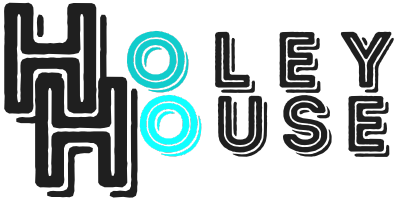There are some truths we don’t choose—truths that are forced on us before we have the language, the boundaries, or the power to stop them. Incest and child sexual abuse are violations so personal, so invasive, they don’t just break the body—they shatter the soul. And while the world often looks for bruises and broken bones, the deepest wounds are the ones we can’t see. The ones that live in our nervous systems, in our belief systems, in our sense of self.
I lived for years not knowing I was carrying this trauma. I thought I was just “too sensitive,” “too emotional,” or “too much.” I thought the shame, the fear, the constant overthinking and self-betrayal were just part of who I was. But they weren’t. They were the residue of trauma—symptoms of a soul trying to survive what never should have happened.
Let’s talk about how incest and child sexual abuse affect us—not just psychologically, but holistically. Because this isn’t just a mental health issue. It’s a whole-being wound.
The Mind:
The War Zone You Can’t Escape
The mind of a survivor is often a battlefield. Abuse scrambles the brain’s ability to feel safe, to trust, and to separate past from present. It distorts our sense of reality—especially when the abuser is someone we were supposed to love and trust. That confusion breeds self-doubt: Was it my fault? Am I making this up? Why didn’t I fight harder?
Our minds can become our enemies—endlessly replaying scenes we want to forget, questioning our worth, expecting betrayal at every turn. And we learn to disconnect from our own inner voice. Why? Because it was silenced. We were taught not to listen to our instincts. So now, even as adults, we second-guess ourselves into paralysis.
The Body:
The Place We Abandoned to Survive
For many survivors, the body becomes a crime scene. A source of shame. A place we left because it hurt too much to stay. Some of us dissociate, some numb out with food, substances, sex, or overworking. Others live in a constant state of hypervigilance—heart racing, shoulders tense, unable to relax because the body never got the message: you’re safe now.
Chronic illness, autoimmune issues, fatigue, migraines, gut problems—these are just a few of the ways our bodies scream what we were never allowed to say out loud. Trauma doesn’t just sit in the mind; it settles into the tissues, the muscles, the cells. And until we begin to feel again—safely, slowly, gently—our bodies will continue to carry the weight of what we couldn’t release.
The Spirit:
The Part of Us That Forgot It Was Sacred
This is the wound that often goes unnamed. The soul wound. Abuse at the hands of someone who was supposed to protect us doesn’t just make us feel unsafe—it makes us feel unworthy. Unlovable. Damaged. It teaches us that intimacy is dangerous, that love comes with pain, and that our voice, our needs, our desires don’t matter.
Many of us internalize this and begin to live small. We shrink ourselves. We settle for less. We chase love in all the wrong places, trying to fill the void. Or we isolate, believing no one could possibly understand what we’ve endured. Spiritually, we feel cut off—not just from others, but from ourselves. From God. From our own light.
But hear me: your spirit is not broken. It may be buried, wounded, weary—but it’s still there. Still alive. Still sacred.
The Path to Healing
Healing is not about pretending it didn’t happen. It’s about reclaiming the parts of you that trauma tried to steal. The part that trusts yourself. The part that knows your body is a good place to live. The part that believes you are worthy of love that doesn’t hurt.
This is soul work. Body work. Mind work. It’s not easy, but it is possible.
At Holey House, we believe that every hole trauma leaves behind is an invitation to heal. To rebuild. To rediscover who you were before the world told you who you had to be to survive.
If you’re reading this, you’re already waking up. You’re already doing the work. Be gentle with yourself. Be curious, not condemning. You are not broken—you are becoming.
Let this be your reminder:
You are not what happened to you.
You are who you choose to become after it.
And you don’t have to do it alone.

0 Comments